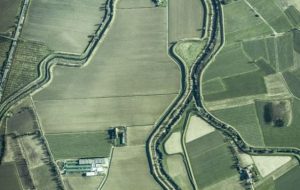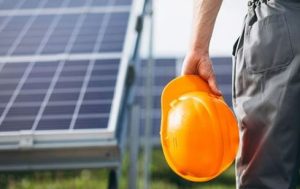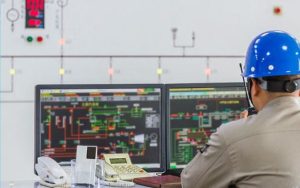The development stages of RES projects.
Like all types of projects, renewable energy projects follow a specific process. There are 4 main stages, each of them requiring its own specialised staff. These are the stages of pre-development, development, construction and finally, project management and maintenance.
Stage 1
 First and very important, is the pre-development stage. This is that phase of the projects in which, after confirming the availability of the grid in an area, the people appointed by the company to find land, look for suitable fields and large pieces of land for the development of photovoltaic and wind projects. Once the necessary land is found, then the company’s experienced team of engineers undertake the necessary inspections. This involves environmental, topographical and archaeological checks in order to confirm the suitability of the land. The last step in the pre-development stage is the legal control on each private or public piece of land.
First and very important, is the pre-development stage. This is that phase of the projects in which, after confirming the availability of the grid in an area, the people appointed by the company to find land, look for suitable fields and large pieces of land for the development of photovoltaic and wind projects. Once the necessary land is found, then the company’s experienced team of engineers undertake the necessary inspections. This involves environmental, topographical and archaeological checks in order to confirm the suitability of the land. The last step in the pre-development stage is the legal control on each private or public piece of land.
Stage 2
 Once the above procedures have been completed, we move on to the development stage. At this stage, the team undertakes to prepare the appropriate studies in order to submit them to the relevant authorities. This step is particularly important since it determines the licensing of the project. Next, the electrical engineering team is responsible for the design of the project so that the terms of connection to the grid can then be negotiated. After all this comes the tendering process in which each company submits its own bid and in this way claims a place in the feasible projects.
Once the above procedures have been completed, we move on to the development stage. At this stage, the team undertakes to prepare the appropriate studies in order to submit them to the relevant authorities. This step is particularly important since it determines the licensing of the project. Next, the electrical engineering team is responsible for the design of the project so that the terms of connection to the grid can then be negotiated. After all this comes the tendering process in which each company submits its own bid and in this way claims a place in the feasible projects.
Stage 3
 The third stage concerns the management of the site and the construction of the project. This is the most important of all stages since possible mistakes can be dangerous for the performance and reliability of the project. A very detailed design of the project is therefore carried out and the materials needed for its construction are selected with great care. Once the construction process has begun, it is crucial that the work is supervised by experienced and qualified staff up to the electrification stage. This avoids any mistakes and ensures the correctness of the project.
The third stage concerns the management of the site and the construction of the project. This is the most important of all stages since possible mistakes can be dangerous for the performance and reliability of the project. A very detailed design of the project is therefore carried out and the materials needed for its construction are selected with great care. Once the construction process has begun, it is crucial that the work is supervised by experienced and qualified staff up to the electrification stage. This avoids any mistakes and ensures the correctness of the project.
Stage 4

The fourth and final stage is the maintenance stage. All renewable energy projects require regular monitoring and control with special systems in order to anticipate and avoid potential problems. Maintenance includes cleaning the panels with special equipment, but also land care (managing the vegetation to the appropriate level). The average lifetime of renewable energy projects is 30-40 years and during this time maintenance plays a very important role in their efficiency.
Perhaps in the past, in the first years of developing RES projects, the procedures were very difficult and time-consuming. But nowadays, the continuous and rapid development of technology, as well as the expertise of people in this field, make the construction and management of projects much easier and more efficient. Of course, experience and consistency at all stages of development is very important.




